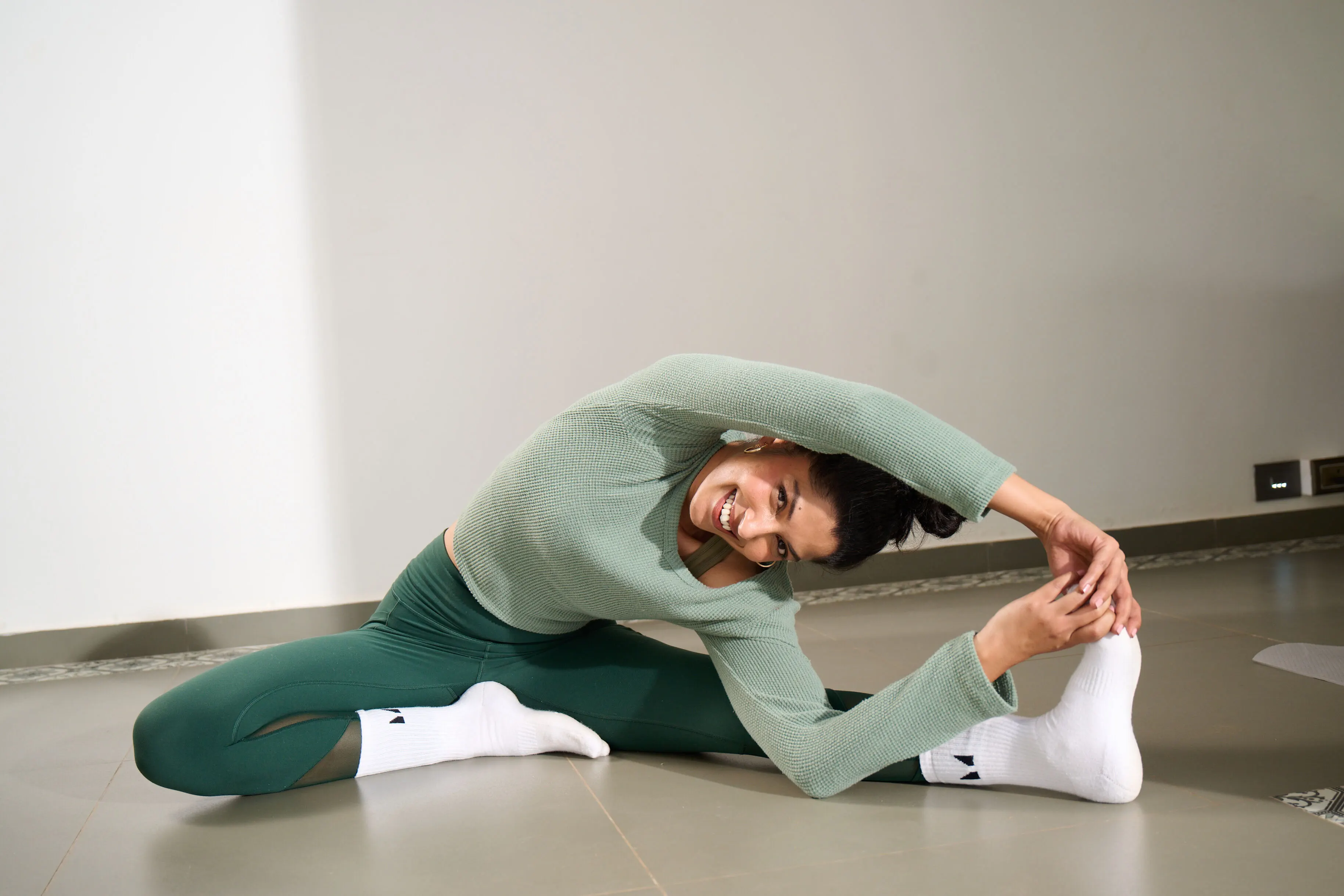Moving from Attention to Mindful Self-Awareness: Ways to Develop It

Have you ever felt like your mind is constantly racing, juggling endless thoughts and distractions? It’s easy to get caught up in the chaos of daily life. But imagine being able to pause, center yourself, and focus on what really matters. To practice with awareness means to embrace mindful self-awareness—a simple yet powerful skill that can reshape the way you think, interact, and make decisions. Mastering this practice, can enhance your clarity, improve your relationships, and tap into a deeper sense of satisfaction.
Let’s break down how you can move from simply paying attention to cultivating mindful self-awareness.
What Is Mindful Self-Awareness?

Mindful self-awareness is more than just knowing what’s going on around you. It’s about being deeply aware of your own thoughts, emotions, and behaviors in the present moment. This isn’t just surface-level attention—it’s about observing without judgment.
General Awareness vs. Self-Awareness
General awareness is being conscious of your surroundings, like noticing a bird chirping or the sound of traffic. Self-awareness goes deeper. It’s understanding why you feel a certain way or how your emotions influence your decisions.
Mindful Attention vs. Self-Focused Awareness
While mindful attention involves observing without judgment, self-focused awareness is about tuning into your inner landscape. To practice with awareness means to truly understand your emotions, reactions, and triggers.
Understanding the difference between these concepts can help you create a stronger connection with yourself. Want to take your mindfulness practice to the next level? Explore online yoga and meditation with Shvasa.
Now that we've explored what mindful self-awareness is, let's dive into why it's so essential for a fulfilling, balanced life.
Why Mindful Self-Awareness Matters?
Mindful self-awareness isn’t just a feel-good practice—it’s a transformative tool that impacts every area of your life. In fact, research shows that while 95% of people think they’re self-aware, only 10 to 15% actually are. This gap highlights the importance of actively cultivating self-awareness. Developing mindful self-awareness can improve your emotional regulation, decision-making, and relationships. Studies have shown that individuals with higher self-awareness experience better leadership abilities, greater emotional intelligence, and increased job satisfaction.
When you align your actions with your true values, you create a foundation for making choices that feel authentic and purposeful.
Clarity of Values and Internal Standards
When you practice mindful self-awareness, you gain a clearer sense of who you are and what truly matters to you. This understanding helps you make decisions based on your core values rather than external pressures or fleeting emotions. Instead of reacting out of habit or circumstance, you can choose actions that align with your internal compass, leading to greater peace and satisfaction.
This clarity empowers you to stay true to yourself, both in your personal life and at work, no matter what challenges come your way.
Improvement in Relationships and Communication
One of the most significant benefits of mindful self-awareness is its ability to improve your relationships. When you understand your emotions and triggers, you’re better equipped to respond thoughtfully instead of reacting impulsively. Instead of letting anger, frustration, or stress dictate your words and actions, you can choose to communicate with calmness and intention.
This doesn’t just make you a better communicator—it strengthens your connections with others, helping you to resolve conflicts more effectively and build deeper, more authentic relationships.
Enhancement in Leadership and Decision-Making
Mindful self-awareness is a key quality in effective leadership. Leaders who understand their own emotions and motivations are able to make more thoughtful, balanced decisions. Instead of being driven by stress or external pressures, they can step back, assess the situation, and choose the best course of action.
This ability to pause and reflect with mindfulness allows them to lead with greater empathy, align their decisions with long-term goals, and guide their teams toward success. Mindful self-awareness, rooted in mindfulness, keeps you focused on what truly matters, whether you’re leading a team or making personal decisions.
Mindful self-awareness enhances not only your personal growth but also how you engage with others and handle challenges. To deepen your practice, explore Shvasa’s online pranayama classes and learn how conscious breathing can elevate your mindfulness journey.
Now that we’ve discussed the importance of mindful self-awareness, let’s explore some practical ways to cultivate it in your daily life.
Practices to Develop Mindful Self-Awareness

To develop mindful self-awareness, you need to integrate practices that help you tune into your mind and body. Here are a few practices you can start today:
Mindful Meditation and Breathing Exercises:
Mindful meditation helps you build the muscle of attention. By focusing on your breath or an anchor, you can tune out distractions and stay present in the moment. This strengthens your ability to be aware of your thoughts and feelings.
Journaling for Reflection and Clarity:
Writing down your thoughts and experiences is an excellent way to reflect. Journaling gives you the space to explore your feelings, challenges, and triumphs, offering insights into your inner world.
Focus on Present Feelings and Reactions:
The key to mindful self-awareness is noticing how you feel in the moment. Techniques like emotional labeling or grounding exercises help you stay present and aware of your immediate reactions.
These practices may feel simple at first, but they’ll gradually help you cultivate a deeper understanding of yourself. With these foundational practices in place, let’s explore some additional techniques that can deepen your mindful awareness even further.
Practical Techniques to Strengthen Your Mindful Awareness

Building mindful self-awareness isn’t just about meditation—it’s about tuning into every aspect of your being, from your body to your movement. These techniques help you stay grounded, aware, and connected, whether you’re still or in motion. Here’s how you can take it further:
Body Scan Practices to Heighten Bodily Awareness:
A body scan is an excellent way to bring attention to how your body feels in the present moment. This practice involves mentally scanning each part of your body, noticing areas of tension, discomfort, or relaxation. It’s a powerful way to become more attuned to physical sensations you might otherwise overlook, helping you release built-up stress and reconnect with your body.
Mindful Eating and Movement to Encourage Presence:
Eating mindfully is about more than just nourishing your body—it’s about being fully present in the experience of eating. Focus on the textures, tastes, and smells of each bite. Slow down, savor the food, and notice how your body feels as you eat. Similarly, mindful movement practices, such as yoga or Tai Chi, encourage you to stay aware of your body in motion.
These activities promote presence in the body and help you become more attuned to physical sensations, fostering a deeper connection to yourself.
Engaging in Activities That Promote Somatic Awareness:
Somatic awareness practices like deep breathing, stretching, or even gentle walking help you connect more fully with your physical body. These activities cultivate mindfulness by encouraging you to notice subtle sensations within your body, such as tension, relaxation, or energy flow. When practiced regularly, they help you tune into your internal state, fostering a sense of calm and clarity.
These simple techniques can help you stay grounded in the present moment and gain deeper insights into how you feel, think, and react. While the benefits of mindful self-awareness are clear, developing this practice can come with its own set of challenges. Let’s take a look at some common obstacles you may encounter along the way.
Navigating the Challenges of Building Self-Awareness

Mindful self-awareness is a lifelong practice. It’s natural to face challenges along the way. The key is to recognize these obstacles and keep moving forward.
Recognizing and Overcoming the Self-Awareness Gap:
One of the biggest challenges is understanding that there may be gaps in your self-awareness. Sometimes, you may not be fully aware of how your actions impact others. Recognizing this gap is the first step toward overcoming it.
Balancing Public and Private Self-Awareness:
In a world where you’re constantly observed, balancing how you present yourselves to others with how you feel privately can be tricky. It’s important to cultivate self-awareness without becoming overly self-conscious.
Dealing with Potential Self-Consciousness:
When you first begin developing self-awareness, you may feel vulnerable or overly critical of yourself. Remember that mindfulness is about non-judgment. Be kind to yourself as you grow in this practice.
As you navigate these challenges, it's important to remember that self-awareness is a lifelong journey. Let’s explore how you can continue to grow and refine this practice over time.
Ongoing Growth: Continuously Improving Your Self-Awareness

Self-awareness isn’t a destination—it’s an ongoing journey. As you grow and change, your self-awareness practice needs to evolve too. Each new experience, each new insight, is an opportunity for deeper reflection and alignment. Here’s how you can foster continuous improvement in this vital practice:
Using Feedback to Uncover Blind Spots
One of the most powerful ways to deepen your self-awareness is by seeking feedback from others. You might not always notice your own blind spots—the patterns, behaviors, or attitudes you tend to overlook or are simply unaware of.
By asking trusted friends, family, or colleagues for constructive feedback, you gain valuable perspectives that might challenge your assumptions and expose areas for growth. This feedback helps you uncover blind spots that might be limiting your personal development and gives you the tools to work on them.
Regular Self-Assessments and Reflections
Improving your self-awareness requires consistent reflection. Make it a habit to regularly assess your thoughts, emotions, and behaviors—whether through journaling, meditation, or simply taking quiet moments to reflect. Journaling, for example, can help you capture your thoughts and track patterns over time. Meditation helps you pause and check in with your inner state.
These practices create space for you to notice how you’re feeling, what drives your decisions, and where you might be reacting from old patterns. The more you reflect, the clearer you’ll become about your true self and your journey.
Intentionally Practicing to Align with Core Values
To practice with awareness means to live with intention. It’s about ensuring that your actions align with your core values—those beliefs and principles that guide you at your deepest level. Regularly ask yourself whether your daily choices, reactions, and decisions reflect what you truly believe in. If you notice discrepancies, take action to course-correct.
This alignment strengthens your sense of purpose and fulfillment, ensuring that you’re not just reacting to life’s circumstances but consciously shaping it according to your values.
As you continue your self-awareness journey, you’ll uncover new ways to align with your inner values and grow as a person.
Conclusion: Embrace Mindful Self-Awareness for a Fuller Life
Mindful self-awareness is a game-changer. It enhances your decision-making, strengthens relationships, and cultivates a deeper connection to both yourself and others. Every practice, whether it’s meditation, journaling, or mindful movement, brings you closer to living with intention and clarity. But remember, this isn’t a destination—it’s a continuous journey. As you continue to develop your self-awareness, you’ll find yourself making more thoughtful choices, feeling more grounded, and experiencing greater peace.
If you’re ready to take your journey of self-awareness to the next level, it’s time to make mindfulness a daily practice. When you build a deeper connection with yourself, everything from your decisions to your relationships improves. It’s all about creating space for reflection and understanding your true needs. Shvasa’s online yoga classes are a great way to start, offering you the tools to cultivate mindfulness and live with more presence and clarity. Start your free trial today and see how mindful living can transform your life.















.jpg)











%201.png)

%201.svg)






%201.svg)